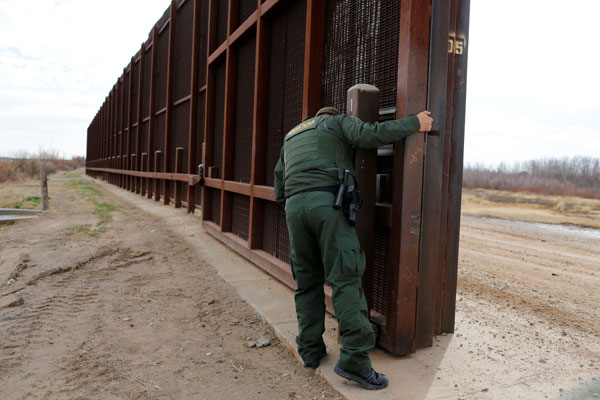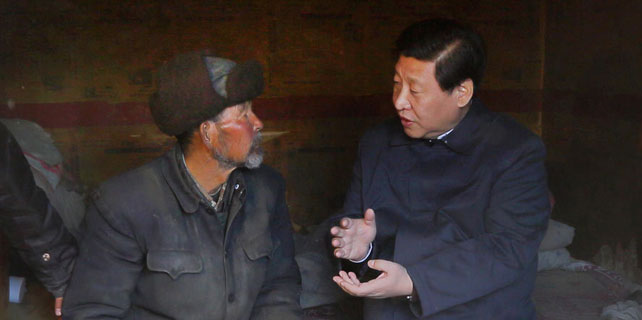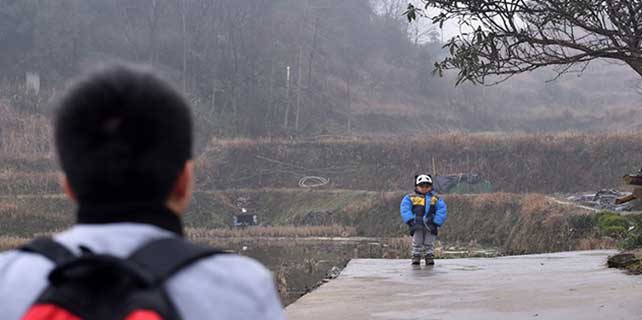Trump moving forward with border wall, weighs refugee cuts
 |
|
A US Border patrol agent opens a gate on the fence along the Mexico border to allow vehicles pass in El Paso, US January 17, 2017. [Photo/Agencies] |
Earlier this month, Trump said the building project would initially be paid for with a congressionally approved spending bill and Mexico will eventually reimburse the US, though he has not specified how he would guarantee payments.
Trump will meet with Mexican President Enrique Pena Nieto at the White House next week.
In claiming authority to build a wall, Trump may rely on a 2006 law that authorized several hundred miles of fencing along the 2,000-mile frontier. That bill led to the construction of about 700 miles of various kinds of fencing designed to block both vehicles and pedestrians.
The Secure Fence Act was signed by then-President George W. Bush and the majority of the fencing in Texas, New Mexico, Arizona and California was built before he left office. The last remnants were completed after President Barack Obama took office in 2009.
The Trump administration also must adhere to a decades-old border treaty with Mexico that limits where and how structures can be built along the border. The 1970 treaty requires that structures cannot disrupt the flow of the rivers, which define the US-Mexican border along Texas and 24 miles in Arizona, according to The International Boundary and Water Commission, a joint US-Mexican agency that administers the treaty.
It appeared as though the refugee restrictions were still to be finalized. The person briefed on the proposals said they included a ban on entry to the US for at least 30 days from countries including Iran, Iraq, Libya, Somalia, Sudan and Yemen, though the person cautioned the details could still change.









